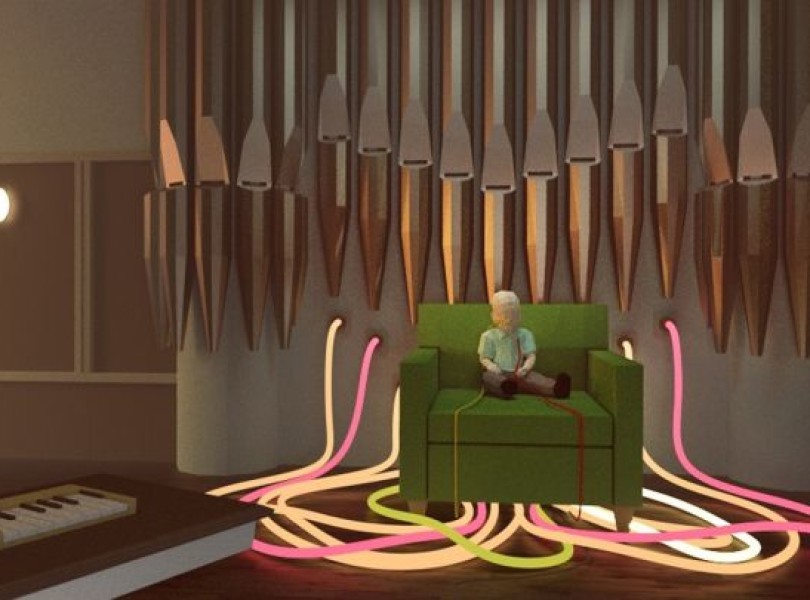Difficult subject matter makes for an unforgettable experience.
By Lucy O’Brien
Made by husband and wife team Ryan and Amy Green, That Dragon, Cancer is both a moving tribute to their son Joel and a confessional of sorts for a pair who have experienced the most heartbreaking of human tragedies. For me, the cumulative effect was one of disarming intimacy with its creators, and while occasionally clunky interactive elements hinder rather than amplify its message, That Dragon, Cancer is a gut-punch of an experience that handles its difficult themes with grace and brutal honesty.

It is, unsurprisingly, hard to critique in conventional terms. Through its two hours, That Dragon, Cancer does not concern itself with any kind of consistency. Its first vignette opens in a pond, where you are being fed bread – you are a duck. Later, you will be a bird, or a nameless friend in a hospital, or a doctor. The Greens’ search for meaning in their little boy’s illness is abstract and scattershot, and this is reflected practically. You are not so much controlling the experience as being allowed into it, in whatever form it may take.

In fact, That Dragon, Cancer all but disposes of commonplace gaming wisdom altogether. There were times I was not sure what I was meant to be doing, as the idea of reaching a ‘goal’ is beside the point here. While this occasionally encouraged feelings of frustration, it felt in step with what the Greens were feeling as they scrambled to make sense of what was unfolding before them.
Perhaps the most chilling example of this came when you, as Ryan, try to placate a screaming Joel in his hospital cot. You feed him juice, he doesn’t want it. You try again, he drinks it, then vomits. (“I always catch it,” says Ryan). I, like Ryan, am at a loss as the screaming begins again. It’s an unflinching sequence, broken by the smallest respite when Joel eventually falls asleep.
While you have little to no control over proceedings, That Dragon, Cancer still gains much by being interactive. Trying to explain Joel’s illness to her other kids, for example, Amy creates a bedtime story that plays out like a side-scrolling platformer where Joel is triumphing over ‘the evil dragon, cancer’, aided by the ‘grace of God’. That the mini-game abruptly ends when one of her children asks after another person he knew who died of cancer speaks to That Dragon, Cancer’s message as a whole: just as there are no easy answers, there is no finite win state.
Not everything works. Joel’s dream sequence where he has to dodge tumorous clouds feels clumsily implemented, and there’s a racing mini-game that aims for subversive but doesn’t quite hit the mark. Although I admire That Dragon, Cancer’s giddy self-awareness as a ‘video game’, these sections felt like padding with no discernible upshot.

But for every high concept, there’s a truth that grounds That Dragon, Cancer: the battle the Greens face is not just a matter of mourning, it’s how to mourn. Amy turns to religion, while Ryan struggles to maintain his faith. They clash, then come together, then clash again. All the while, you swoop in and out of their lives as an impassioned but helpless observer as they plead to God, each other, and Joel. As the credits played, I felt fortunate they allowed me in.
Although not every part of That Dragon, Cancer works, it’s a crushingly intimate game that left me thankful for the people who are still in my life, and reflective on those who are not. I’m so grateful to the Greens for sharing their experience.



